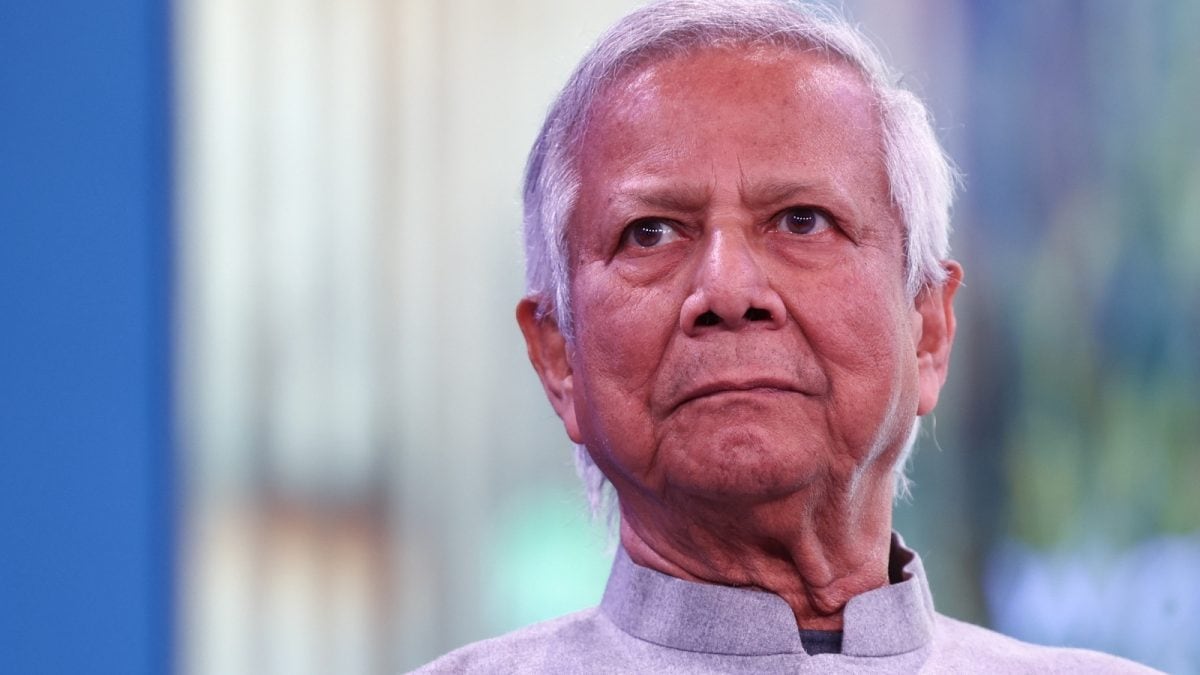Last Updated:October 23, 2025, 16:49 IST
As China and Russia target American innovation, 'sex warfare' is emerging as a key tactic in a broader, often invisible campaign of technological espionage

Chinese and Russian operatives are increasingly using “sex warfare” tactics to infiltrate the American tech sector. (Representative image)
In the heart of Silicon Valley, where billion-dollar ideas are pitched over coffee and defence contracts are won with innovation, a silent war is escalating, and it doesn’t always involve code, satellites, or cyber intrusions. Sometimes, it involves charm. Sometimes, a wedding ring. And often, no one even realises what’s happening until it’s too late.
According to current and former US counterintelligence officials, Chinese and Russian operatives are increasingly using “sex warfare" tactics — seduction, romance, and long-term manipulation — to infiltrate the American tech sector. It’s a method long associated with Cold War spy thrillers, but it has resurfaced with new force in Silicon Valley, where openness, ambition, and secrecy collide.
As one former US counterintelligence officer put it in The Times, “Showing up, marrying a target, having kids with a target — and conducting a lifelong collection operation, it’s very uncomfortable to think about but it’s so prevalent."
What Is ‘Sex Warfare’?
“Sex warfare" refers to the deliberate use of intimate relationships, often romantic or sexual in nature, to gain access to sensitive information or compromise a target. It is a longstanding espionage tactic rooted in Cold War playbooks, but one that has taken on a new urgency in the age of tech dominance.
James Mulvenon, chief intelligence officer at Pamir Consulting and a 30-year veteran of counterintelligence investigations, told The Times he’s seeing a surge in attempts. “I’m getting an enormous number of very sophisticated LinkedIn requests from the same type of attractive young Chinese woman," he said. “It really seems to have ramped up recently."
Mulvenon described an incident at a recent Virginia business conference focused on Chinese investment risks, where two attractive Chinese women tried to enter the event armed with all the relevant information, but were turned away. “It is a phenomenon. And I will tell you: it is weird," he said.
The tactic poses a unique challenge for the US. “It’s a real vulnerability," Mulvenon explained, “because we, by statute and by culture, do not do that. So they have an asymmetric advantage when it comes to sex warfare."
From Affairs To Family: Long-Term Espionage Through Seduction
One of the most startling features of modern sex-based espionage is how deep and long-term the operations can go.
A former counterintelligence official told The Times about a case involving a “beautiful" Russian woman who married an American aerospace engineer while working on defence-adjacent projects in the US. She had earlier trained at a modelling academy, then reportedly attended a “Russian soft-power school" before disappearing for years.
She resurfaced as a cryptocurrency expert and soon became involved in the military-space innovation ecosystem, all while her husband remained unaware.
Such operations aren’t short-lived flings. They’re decades-long strategic insertions designed to build trust, proximity, and access.
Fake Competitions, Real Losses: The Startup Trap
But seduction is only one of the weapons in the espionage arsenal.
US officials are increasingly warning about Chinese-backed startup competitions, some held on American soil, that offer generous funding and prizes to young entrepreneurs, with strings attached. These contests often require participants to share their intellectual property, business plans, and even personal information before pitching to Chinese investors.
One biotech CEO who attended a global startup competition recalled being followed by officials, made to wear a microphone, and peppered with questions. He told The Times, “They would record everything I would say, do and then ask questions like a reporter would." After winning $50,000, he was surprised when the organisers wired it to his personal account, not the company’s. “That was weird," he said.
Later, the US government froze his firm’s federal funding, allegedly due to Asian investor ties disclosed during the pitch event, effectively shutting his startup down.
This, Mulvenon warned, is part of a broader strategy. “The percentage of foreign ownership crosses a threshold so the DoD can’t make any more investments in those companies, denying the government access to innovative startups and IP," he said, calling it a tactic of “drafting".
The Numbers Behind The Secrets
The cost of intellectual property theft in the US is staggering. According to the Commission on the Theft of American Intellectual Property, such losses amount to as much as $600 billion a year, with China identified as the leading source.
Some cases are alarmingly direct. In July 2025, Chenguang Gong, a Chinese-American dual national from San Jose, California, pleaded guilty to stealing classified defence technology. According to the US Department of Justice, Gong downloaded over 3,600 files from a defence firm, including blueprints for infrared sensors used to detect nuclear missile launches and equipment designed to counter heat-seeking missiles.
Gong had previously applied to Chinese state-run “Talent Programmes" and admitted in a 2019 email that he had “taken a risk" due to his links with the US defence industry, but hoped to contribute to China’s military chip design capabilities. He now faces up to 10 years in prison.
Not Just China: Russia’s Espionage Playbook Still Works
While China is the dominant player in tech espionage, Russia hasn’t left the game and still relies on tried-and-tested methods.
In Politico’s landmark 2018 investigation, former FBI counterintelligence agents detailed how Russian intelligence used Eastern European prostitutes in Silicon Valley nightclubs and luxury hotels to extract information from tech executives.
One former official put it bluntly: “If I were a Russian intelligence officer, and I knew that these high-end girls were dragging CEOs of major companies back to their rooms, I’d be paying them for info too."
These operations often don’t need direct access to secrets; they just need proximity. “You don’t need to be on the inside, you just need somebody on the inside that you have access to," the official explained.
A Whole-Of-Society Espionage Strategy
What makes the current wave of espionage especially hard to counter is that many of the operatives are not traditional spies. As one senior counterintelligence official told The Times, “We’re not chasing a KGB agent in a smoky guesthouse in Germany anymore."
Instead, “our adversaries, particularly the Chinese, are using a whole-of-society approach to exploit all aspects of our technology and Western talent." That means leveraging businessmen, academics, crypto analysts, and students, rather than cloaked agents from embassies.
In the Bay Area, the northern California region encompassing San Francisco and Silicon Valley, intelligence officials once estimated that 20 per cent of all FBI counterintelligence IP cases originated in the region, according to Politico. Chinese operatives, they said, often threaten or pressure US-based Chinese nationals into cooperation by using their families as leverage.
San Francisco: The Long Game, The Deep Roots
The San Francisco Bay Area, home to Silicon Valley, major universities, powerful politicians, and immigrant communities, has long been a magnet for foreign spies. Its open, entrepreneurial culture makes it uniquely vulnerable to subtle forms of infiltration and influence.
According to Politico, Chinese intelligence has maintained a dedicated Ministry of State Security (MSS) unit focused specifically on California, and has historically run operations through local political intermediaries, university student organisations, and diaspora networks.
In one striking case, a staffer in US Senator Dianne Feinstein’s San Francisco office allegedly reported on local political developments to Chinese intelligence for years. In another, during the 2008 Beijing Olympics torch relay, which passed through San Francisco, the only US city on the route, thousands of Chinese students were bussed in and coordinated by officials to drown out protests by Tibetans, Falun Gong practitioners (a banned spiritual group in China), and pro-democracy activists.
US officials observed Chinese intelligence officers directing student blocs to specific protest points across the city, ensuring dissent was quickly overwhelmed or silenced.
Even now, former FBI agents say many Silicon Valley companies underreport or ignore espionage threats, fearing the reputational damage and impact on investor confidence. With the Bay Area at the crossroads of innovation, influence, and global ambition, its vulnerabilities remain deeply embedded.
The Silent Battlefield
Jeff Stoff, a former national security analyst, told The Times, “China is targeting our startups, our academic institutions, our innovators, our DoD-funded research projects. But there’s not enough oversight and action. It’s all intertwined as part of China’s economic warfare strategy, and we’ve not even entered the battlefield."
And that battlefield increasingly includes relationships, dating apps, pitch rooms, and personal inboxes, not just servers and secure labs. While intelligence services scramble to keep up, the threat isn’t just theoretical. It’s personal, pervasive, and very much ongoing. As Mulvenon warned, “It’s the Wild West out there."

Karishma Jain, Chief Sub Editor at News18.com, writes and edits opinion pieces on a variety of subjects, including Indian politics and policy, culture and the arts, technology and social change. Follow her @kar...Read More
Karishma Jain, Chief Sub Editor at News18.com, writes and edits opinion pieces on a variety of subjects, including Indian politics and policy, culture and the arts, technology and social change. Follow her @kar...
Read More
First Published:
October 23, 2025, 16:49 IST
News world The Seduction Strategy: How Spies Are Targeting Silicon Valley Secrets Through 'Sex Warfare'
Disclaimer: Comments reflect users’ views, not News18’s. Please keep discussions respectful and constructive. Abusive, defamatory, or illegal comments will be removed. News18 may disable any comment at its discretion. By posting, you agree to our Terms of Use and Privacy Policy.
Read More

 7 hours ago
7 hours ago


















